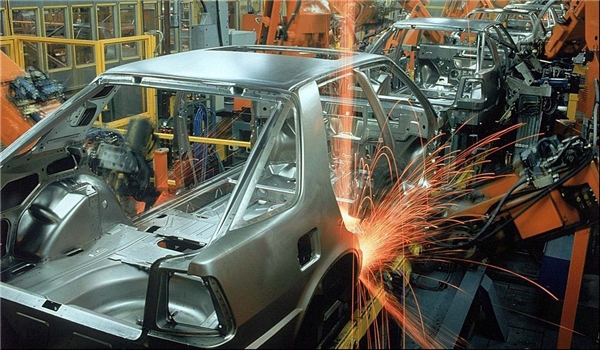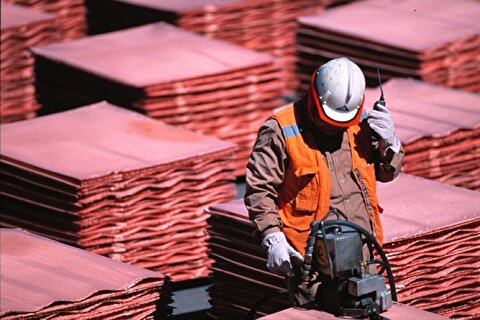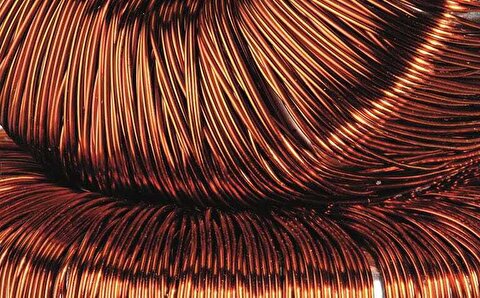
Iranian Parts Maker Indigenizes Air Bag Tech. after US Sanctions

The CEO of the Crouse Company, the largest car parts manufacturer in Iran, said on Thursday that his group had mastered the technology needed for production of ACUs after some four years of research and repeated tests.
Nader Sakha said that the ACU is one of the main components needed to assemble airbag sets in Iran, saying that the Crouse Company was ready for the commercial production of the unit in the near future.
Sakha said the company was seeking to fully master the technology needed for production of car airbags, adding that the parts-maker was cooperating with universities and companies in the Iranian defense sector to produce other airbag components, including the thread used to sew the inflatable bags and the crash sensors.
He said the mass production of ACUs in Iran would reduce the costs of imports for airbag data-x-items up to 35 percent.
The announcement comes as Iranian carmakers are carrying out serious reform programs to reduce their dependency on foreign companies amid sanctions that have affected their production lines.
It also comes weeks after the Iran Khodro Company (IKCO), where the Crouse group is a major shareholder, launched production for a car model belonging to Peugeot some three years after the French company left Iran and abandoned its joint venture with the IKCO citing fears from US sanctions.
The production of the Peugeot 301 came as the IKCO said it would master more than 80 percent of the technology and expertise needed for the production of the car in the near future.
Last Sunday, it was announced that Iranian experts working for a knowledge-based company managed to produce calcium-based alloys with applications in auto industry.
"Lead-calcium alloys are used in manufacturing different products, specially (car) battery plates and given its specifications, it has replaced other alloys," Managing-Director of the company Amir Taleb said.
He added that a considerable part of the needs to car batteries in Iran can now be provided given the indigenization of their production in the country.
Iran is the Middle East’s largest auto market with a population of more than 80 million who are estimated to buy more than 1 million cars every year.
The automobile industry is seen as Iran’s biggest non-oil sector, accounting for nearly 10% of the country’s gross domestic product (GDP).
IKCO and Saipa companies account for more than 90 percent of the total domestic production in Iran.
Iran’s automakers have been approaching Honda, Toyota and Mitsubishi in the hope of transferring Japanese technology.
IKCO exports vehicles to Russia, Syria, Turkey, Iraq, Azerbaijan, Ukraine, Egypt, Algeria, and Bulgaria.


Newmont nets $100M payment related Akyem mine sale

First Quantum scores $1B streaming deal with Royal Gold

Caterpillar sees US tariff hit of up to $1.5 billion this year

Gold price rebounds nearly 2% on US payrolls data

Copper price collapses by 20% as US excludes refined metal from tariffs

St Augustine PFS confirms ‘world-class’ potential of Kingking project with $4.2B value

B2Gold gets Mali nod to start underground mining at Fekola

Goldman told clients to go long copper a day before price plunge

Copper price posts second weekly drop after Trump’s tariff surprise

Codelco seeks restart at Chilean copper mine after collapse

US slaps tariffs on 1-kg, 100-oz gold bars: Financial Times

BHP, Vale offer $1.4 billion settlement in UK lawsuit over Brazil dam disaster, FT reports

NextSource soars on Mitsubishi Chemical offtake deal

Copper price slips as unwinding of tariff trade boosts LME stockpiles

SAIL Bhilai Steel relies on Danieli proprietary technology to expand plate mill portfolio to higher steel grades

Alba Discloses its Financial Results for the Second Quarter and H1 of 2025

Australia weighs price floor for critical minerals, boosting rare earth miners

Australia pledges $87M to rescue Trafigura’s Nyrstar smelters in critical minerals push

Fresnillo lifts gold forecast on strong first-half surge

US slaps tariffs on 1-kg, 100-oz gold bars: Financial Times

BHP, Vale offer $1.4 billion settlement in UK lawsuit over Brazil dam disaster, FT reports

NextSource soars on Mitsubishi Chemical offtake deal

Copper price slips as unwinding of tariff trade boosts LME stockpiles

SAIL Bhilai Steel relies on Danieli proprietary technology to expand plate mill portfolio to higher steel grades

Alba Discloses its Financial Results for the Second Quarter and H1 of 2025

Australia weighs price floor for critical minerals, boosting rare earth miners

Australia pledges $87M to rescue Trafigura’s Nyrstar smelters in critical minerals push

Fresnillo lifts gold forecast on strong first-half surge














